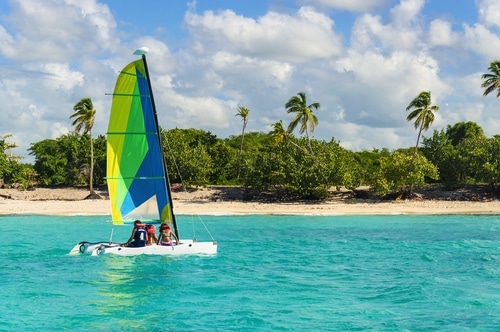
HEALTH ADVICE FOR TRAVEL IN MARTINIQUE
Risk of Zika in Martinique. Learn More >>
We make every effort to ensure that the information posted on our website is up to date and accurate according to the latest public health recommendations; however, travel health risks in *name of country* can change quickly.
For the most current travel health recommendations, please call our clinic to make an appointment with one of our travel health professionals.
WHAT VACCINES DO I NEED FOR MARTINIQUE In 2026
The Government of Canada and the CDC recommend the following vaccines for travelling to Martinique Islands In 2026: Traveler’s Diarrhea, Hepatitis A, Hepatitis B, Rabies, Flu, COVID-19, Typhoid fever.
MARTINIQUE – RECOMMENDED VACCINES
| Yellow Fever |
A proof of vaccination against yellow fever may be required upon entry in to this country. Some travellers may not be eligible to receive this vaccine. Please enquire with your health care professional regarding your specific details. For further information, please consult with the World Health Organization (WHO) website: |
| Hepatitis A | Recommended for all travelers. |
| Tetanus – Diphteria – Pertussis | Tetanus: In exceptional circumstances (eg, stay in a region where access to health care is limited), for a person aged 18 years or older, 1 dose of DT may be given if 5 years or more has elapsed since the last dose. Otherwise, one booster dose at the age of 50*. Pertussis (Whooping Cough): 1 dose is recommended for pregnant women, for every pregnancy, regardless of immunization history and the interval since the last dose (betwen week 26 and 32). *Only applicable for Quebec. |
| Measles – Rubella – Mumps | Two doses recommended for all travelers born after 1970, if not previously given. |
| Rabies | For travelers at high risk of animal bites or being involved in activities with bats. Clients who plan to visit remote areas may consider receiving this vaccine. Important to note the pre-exposure rabies vaccine is administered in 2 doses with one week interval between doses. Post-exposure vaccination is always recommended, even for those previously vaccinated. |
| Flu – Influenza | Seasonal influenza occurs worldwide. The flu season usually runs from November to April in the northern hemisphere, between April and October in the southern hemisphere and year round in the tropics. Influenza (flu) is caused by a virus spread from person to person through coughing and sneezing or by touching infected surfaces. Everyone 6 months and older should get a flu vaccine yearly. Vaccine is recommended 14 days prior to departure. |
| Routine vaccines (dCaT, Polio, Meningococcal, Shingles, Pneumococcal, Hepatitis B, HPV, MMR & Varicella) | Recommended for all travelers |
| Typhoid fever | Recommended for most travelers, especially those who are staying with friends or relatives; visiting smaller cities, villages, or rural areas where exposure might occur through food or water; or prone to “adventurous eating” |
| Hepatitis B | Consider for most travelers; recommended for those who might be exposed to blood or other body fluids, have sexual contact with the local population, or be exposed through medical treatment (e.g., for an accident). |
| African Tick Bite Fever | Could be present. All travellers should protect themselves against tick bites. |
| Schistosomiasis | Avoid swimming in fresh water. |
| Traveler’s Diarrhea (ETEC) | Talk to your health care professional about the risks and precautionary measures to take, as well as the Dukoral® vaccine. Important to note that the Dukoral vaccine is an oral vaccine given in 2 doses, recommended at least 2 weeks prior to departure. |
| Dengue Fever, Chikungunya and/or Zika | There are many illnesses that are transmitted via mosquito bites and unfortunately we do not have vaccines to protect us against most of them. It is important to inquire with your healthcare professional regarding the specific risks and the different illnesses presently in circulation. |
RECOMMENDED MEDICATIONS for travel in Martinique
| Antibiotics Traveler’s Diarrhea | Ciprofloxacin, Azithromycin or Suprax. |
SECURITY ABROAD
The crime rate is low. Petty theft, such as pickpocketing and purse snatching, and theft from cars occur, mainly in the capital, Fort de France, and its port. Do not carry large amounts of cash or wear expensive jewellery. Leave your passport and other travel documents locked in your hotel safe. Never leave …
Emergency services in martinique
Dial 112 for emergency assistance.
